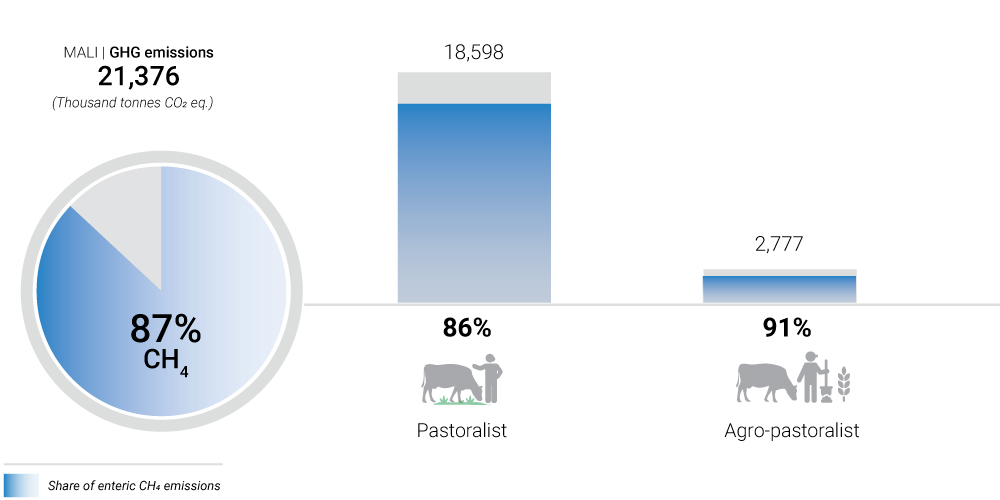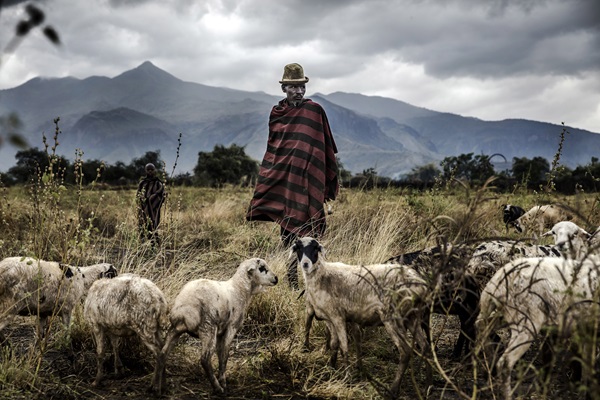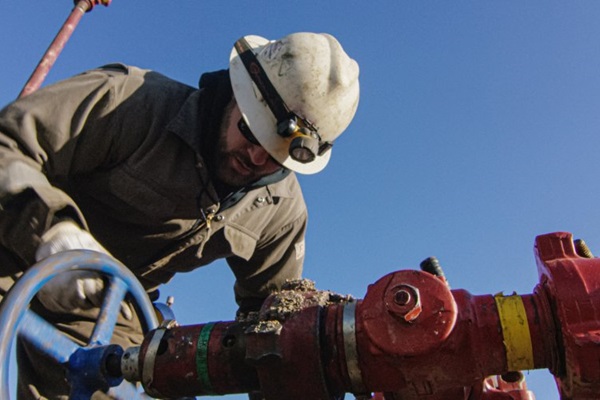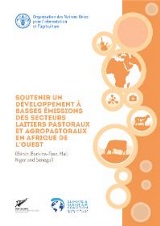 Mali
Mali

DC_Mali
- 20.8 million
Human population - 115.6 million
Livestock population - 45% Chickens, 24% Goats, 17% Sheep, 11% Cattle and 3% other
Livestock composition - 36 percent
Agriculture, forestry, and fishing, value added (% of GDP)
Overview
Dairy production in Mali is mainly based on pastoral and agropastoral systems. Milk yield is less than one litre per cow per day. Pastoral systems have low animal densities and are mainly located in the Northern part of the country. In 2013, the production of milk was over 420 million litres from 2.6 million milking cows.
Baseline greenhouse gas emissions
The dairy sector of Mali emitted about 21 million tonnes carbon dioxide equivalent (CO2-eq.) of greenhouse gases in 2013. These emissions were dominated by enteric fermentation (87 percent) and manure management systems (6 percent). Emission intensity was 51 kg CO2-eq. per kilograms of fat and protein corrected milk (FPCM) and 35 kg CO2-eq/kg FPCM in pastoral ones.
Mitigation interventions
The use of improved breeds in agropastoral systems and forage tree cultivation in pastoral systems showed the highest potential to decrease emission intensity. Other interventions aimed at improving feeding, such as supplementation with urea-treated straw, had also a high potential of impact on agropastoral systems. Combining interventions in Mali could lead to emission intensity reductions reaching 34 percent in pastoral systems and 28 percent in agropastoral systems. Furthermore, such an intervention package would bring co-benefits for farmers’ income and resilience.






